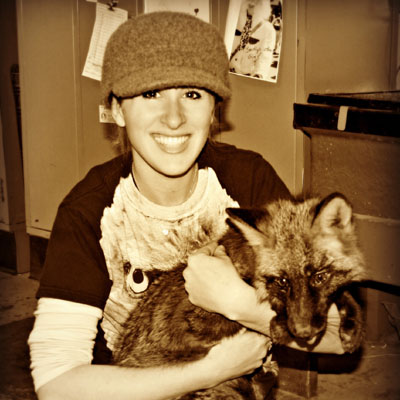I spent the five happiest years of my life in a morgue. As a forensic scientist in the Cleveland coroner’s office I analyzed gunshot residue on hands and clothing, hairs, fibers, paint, glass, DNA, blood and many other forms of trace evidence, as well as crime scenes. Now I'm a certified latent print examiner and CSI for a police department in Florida. I also write a series of forensic suspense novels, turning the day job into fiction. My books have been translated into six languages.
The skin cells sloughed off and left in a fingerprint contain DNA, but there's no guarantee that there will be a sufficient amount to obtain a DNA profile so it's a risk to go straight to DNA testing instead of developing the fingerprint. Besides, identical twins will have the same DNA but different fingerprints.
I apologize to your girlfriend on behalf of the law enforcement community. No one should ever be told that their crime is not 'a big enough deal.' Even if the responding person thinks that, and I'm not saying we don't sometimes, you would think they'd have better sense than to say so. Unfortunately you had a lazy cop who didn't want to get his hands dirty--or, truly, that could be an unofficial policy taught to rookies by other lazy cops who don't want to get their hands dirty. OR it could be the policy of the latent prints department who want to limit their caseload so they won't accept cases that had a claim less than X amount of dollars. So it's hard to know where it came from, but it's still wrong. Anyone who's burglarizing a condo is burglarizing plenty of other places as well and it would benefit everyone in town if they were caught. It would only take ten or fifteen minutes to throw some powder on at least the point of entry and any smooth and glossy surfaces the burglar had to have touched (bearing in mind that knocked over is not the same as touched) such as a mirrored medicine cabinet or a glossy lacquered jewelry box. Now if she's positive the perpetrator is her ne'er do well stepson who lives there (so that it is technically not burglary) or she realizes the burglary happened 3 weeks ago and she didn't check her jewelry until now or some such circumstances as that, or if the door had been left standing open and the only item disturbed is fabric-covered so it won't hold prints, I can understand not processing for prints, but they still should explain that. That said, burglaries are my LEAST favorite task at my job, but that's because I'm lazy and hate getting my hands dirty.
I can try. I'm not an anthropologist, but we do have a field guide here showing the skeletons of many mammals and birds. We used to have a lot of 'found bones' calls at my agency--the area had a great deal of construction going on in the area and the digging would often turn up bones.
Not to sound like a smart aleck, but you're on the payroll of whoever you work for--that can be the police department, the state police lab, the coroner's or medical examiner's office, the county sheriff's department, or an independent lab (usually doing DNA). You can also be a sworn officer or a civilian employee of same. Titles are not uniform. When I was at the coroner's office my title was forensic scientist because that was what the coroner said it was. At the police department I was an evidence specialist and then became a forensic specialist after I completed my training for fingerprint analysis. Your title is whatever your boss says it is.
Professional Gamer
 What's the longest playing gaming session you've ever had?
What's the longest playing gaming session you've ever had?
Zookeeper and Animal Trainer
 Why are some people so protective of endangered species?
Why are some people so protective of endangered species?
Private Detective
To ever-more sensitive DNA collection and analysis, I believe. The other growing fields will probably be the analysis and utilization of computers, cell phones and video surveillance.
The way I understand it--and I am NOT a lawyer!--is that technically you don't need permission to get a DNA sample (which is just a cotton swab rubbed on the inside of your cheek, doens't hurt) because the 5th amendment right against self-incrimination only applies to testimonial evidence. You can't be made to speak against yourself, but your fingerprints can be collected whether you like it or not so DNA should be the same. A sample can be collected from a discarded cup or can because garbage is abandoned property and can be taken by anyone. (Of course if you go through their trash cans, you can't prove that your suspect drank from that cup.) I believe it might also be affected by whether the suspect was in custody or not at the time of collection. And it won't help to test an official sample later because if the first sample is excluded from trial, then anything collected as a result of that will be thrown out too (or so I understand from repeated viewings of Law and Order.) That said, at my agency the detectives always get the person to give consent or they get a search warrant from a judge, just so there are no issues when it gets to court. It's not worth the risk of going through all the work to get to court and then having it all thrown out, so I think those tricks are largely used only on TV. I can tell you I've never seen it happen.
I don't know, unless the corpse lay in bleach or some other chemical that would react with the bleach in the hair. Dark hair can (I know from personal experience) turn kind of orangy when you try to lighten it. Otherwise hair does not change much either while living or dead.
-OR-
 Login with Facebook
Login with Facebook (max 20 characters - letters, numbers, and underscores only. Note that your username is private, and you have the option to choose an alias when asking questions or hosting a Q&A.)
(A valid e-mail address is required. Your e-mail will not be shared with anyone.)
(min 5 characters)
By checking this box, you acknowledge that you have read and agree to Jobstr.com’s Terms and Privacy Policy.
-OR-
 Register with Facebook
Register with Facebook(Don't worry: you'll be able to choose an alias when asking questions or hosting a Q&A.)